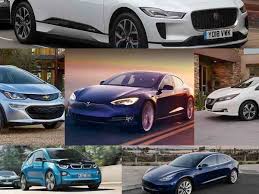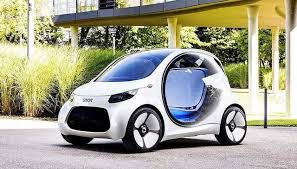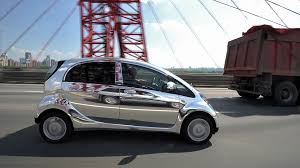By 2040, electric vehicles will dominate sales, reducing oil demand by 13 million barrels per day
 Passenger car sales from ice have already reached a peak, and this development will have wide implications not only for the automotive sector, but also for oil and gas, metals and mining companies.
Passenger car sales from ice have already reached a peak, and this development will have wide implications not only for the automotive sector, but also for oil and gas, metals and mining companies.
According to new research, electric vehicles should account for more than half of global passenger car sales by 2040 and completely dominate the bus market.
Sales of diesel and gasoline vehicles will continue to decline, according to Bloomberg NEF Electric Vehicle Outlook 2019 forecast.
The report shows that by 2040 the share of electric vehicles will account for 57% of world passenger car sales, the sector will dominate electric buses, which will account for 81% of sales of city buses.Electric models will also account for 56% of light commercial vehicle sales — vans and light trucks in Europe, the US and China over the next two decades and 31% of the medium commercial vehicle market. Heavy electric trucks will occupy almost a fifth of the market, although their range of movement will be limited to shorter routes.
Conventional heavy trucks will face competition from other modes of transport for alternative fuels such as natural gas and hydrogen fuel cells.
The research team believes that personal modes of transport (bicycles, scooters, scooters) as well as car-sharing services will continue to be in demand. According to BNEF, the share of car sharing currently accounts for less than 5% of all passenger traffic in the world, but by 2040 this figure will increase to 19%. Autonomous driving will not affect global transport and energy models until the 2030s, but as the sector grows, it will have a disproportionate impact on the electric vehicle market.
Head of BNEF on issues of carpooling, noted that service providers carpooling will prefer electric cars faster than individuals. Currently, there are more than a billion users of common mobile services worldwide. These services will continue to grow and gradually reduce the demand for private property.
The growth of the electric vehicle market over the next 20 years will be largely driven by the continuing decline in battery prices. Political support, such as fuel economy regulation and China’s new mandate for electric vehicles, will play an important role in promoting the market in the next 5-7 years, starting in the second half of 2020.
Electric cars will become cheaper than cars with internal combustion engines by the mid-to-late 2020s in virtually all markets, not only on the basis of costs over the life of the vehicle, but also in terms of initial costs. Since 2010, the average cost of lithium-ion batteries per kilowatt-hour has fallen by 85% due to a combination of economies of scale and technological improvements.
China will continue to dominate the market in the near future, accounting for almost half (48%) of all passenger car sales in 2025. This share will fall to a quarter by 2040, when other markets catch up. China continues to lead the production of electric cars, it will account for 48% of all passenger electric cars sold in 2025, and 26% in 2040, Europe will overtake the US as the second largest market during the 2020s. The growth of electric vehicles in emerging markets will be much slower, leading to fragmentation of the global electric vehicle market.
BNEF expects passenger electric vehicle sales to grow more than 10-fold, from 2 million worldwide in 2018 to 28 million in 2030 and 56 million by 2040. Meanwhile, sales of conventional passenger cars will be reduced by more than half — to 42 million by 2040 from 85 million in 2018.
BNEF expects that the growth of the electric vehicle market will reduce the demand for fuel by 13.7 million barrels per day, almost double its forecast last year. This is partly because the electrification of commercial vehicles will be faster than previously predicted, partly because fuel efficiency improvements in internal combustion engines must now be slower than previously anticipated, which means that each new electric vehicle displaces more fossil fuels.
BNEF estimates that electric cars will add 6.8 percent to the global electricity demand in 2040 and will stimulate growth in demand for lithium-ion batteries with 151 GW⋅h in 2019 to 1748 GW * h in 2030. To avoid supply cuts, new lithium-ion mines will need to be opened.
The BNEF team believes that the number of conventional cars on the road will continue to grow over the next decade with concomitant increases in emissions, which will then fall sharply in the 2030s.



